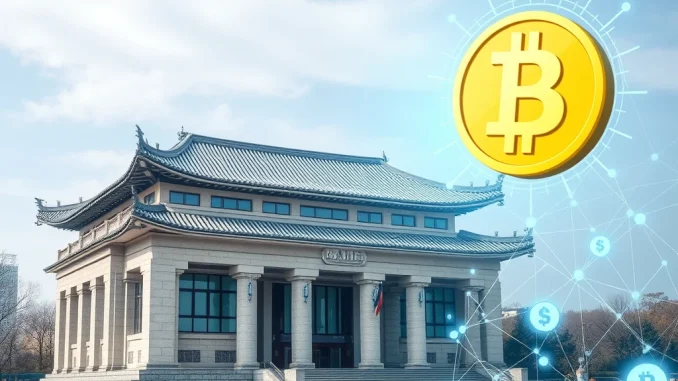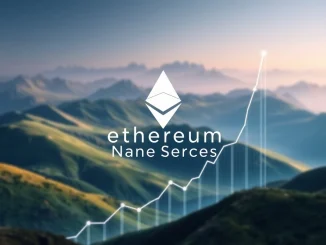
Big news from South Korea! A major player in the traditional finance world is taking a significant step into the digital asset space. KB Kookmin Bank, one of the largest commercial banks in the country, is actively pursuing trademark rights related to stablecoins. This move signals a growing interest from established financial institutions in leveraging blockchain technology and digital currencies.
KB Kookmin Bank’s Strategic Trademark Applications
According to local reports, KB Kookmin Bank has initiated the formal process to secure trademarks associated with stablecoins. This action is particularly noteworthy as it represents the first time a traditional, large-scale bank in South Korea has taken such a step. It follows a similar initiative by KakaoBank, the digital-first bank linked to the popular Kakao messaging platform, which previously filed trademark applications for names like BKRW, KRWB, KKBKRW, and KRWKKB.
KB Kookmin Bank’s proposed trademarks include combinations of its own name (‘KB’) and the symbol for the Korean won (‘KRW’). Specific examples mentioned are KBKRW, KRWKB, KBST, and KRWST. These names strongly suggest an intention to potentially issue or interact with a stablecoin pegged to the value of the Korean won.
Understanding Stablecoins and Why Banks Are Interested
What exactly are stablecoins, and why are traditional banks like KB Kookmin Bank exploring them? Stablecoins are a type of cryptocurrency designed to minimize price volatility, typically by being pegged to a ‘stable’ asset like a fiat currency (such as the Korean won or US dollar), gold, or another cryptocurrency.
For banks, stablecoins offer several potential advantages:
- **Efficiency:** Faster and cheaper transactions compared to traditional payment systems.
- **Innovation:** A way to participate in the evolving digital economy and blockchain space.
- **New Services:** Potential for offering new financial products and services built on stablecoin technology.
- **Market Position:** Staying competitive in a landscape where digital assets are becoming more prevalent.
Obtaining trademarks is a crucial step for the bank to protect its brand identity and potential future products within the stablecoin ecosystem.
South Korea’s Evolving Cryptocurrency Landscape
South Korea has a dynamic relationship with the cryptocurrency market. It’s home to enthusiastic investors and is a hub for blockchain development. Regulatory approaches have been cautious but are gradually evolving to accommodate digital assets. The move by KB Kookmin Bank, following KakaoBank, indicates that major financial players are actively considering how they fit into this future.
This development could potentially pave the way for greater integration of digital currencies within the mainstream financial system in South Korea. While trademark applications don’t guarantee the launch of a stablecoin, they clearly signal strategic planning and exploration in this area.
What Does This Mean for the Future?
The interest shown by KB Kookmin Bank in stablecoin-related trademarks highlights a broader trend: the convergence of traditional finance and cryptocurrency. As regulatory clarity improves and technology matures, we may see more banks exploring digital asset initiatives.
This could lead to:
- Increased adoption of stablecoins for payments and transfers.
- New partnerships between banks and blockchain technology providers.
- Potential development of central bank digital currencies (CBDCs) being influenced by private stablecoin initiatives.
The actions of institutions like KB Kookmin Bank are key indicators of how the financial landscape is changing.
Summary
KB Kookmin Bank’s move to secure stablecoin trademarks is a significant development in South Korea’s financial sector. As the first traditional bank to take this step, it signals serious exploration into digital currencies, following the path of digital banks like KakaoBank. While the full scope of their plans remains to be seen, these trademark applications clearly demonstrate a strategic interest in stablecoins and the broader cryptocurrency space, potentially shaping the future of finance in South Korea.



